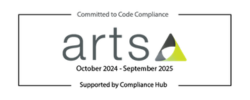The gift of GIRFT in improving footcare service and variation
)
The GIRFT report has provided a real opportunity to “support, drive and prevent” diabetes footcare variation, says a top podiatrist.
Graham Bowen, Principal Podiatrist at Solent NHS Trust, made the comments during the very first DPC Winter Forum series.
Click here to watch the recording
Entitled ‘GIRFT 2020 into practice: Report overview & footcare in focus’, the session was the first of six free, independently produced webinars which are being led by a panel of experts from the diabetes multi-disciplinary team.
Footcare within diabetes is a major issue, as it leads to more than 8,500 leg, toe, or foot amputations every year. Figures show that from 2014 to 2015, healthcare-related foot ulceration and amputations for people living with diabetes was estimated to cost £1 billion in England
Professor Partha Kar OBE, Consultant Endocrinologist and Clinical Lead GIRFT Diabetes, opened the event where he explained the importance of GIRFT, who it is for and why it was launched.
He was joined by Professor Gerry Rayman, Consultant Diabetologist and Clinical Lead for Diabetes GIRFT, East Suffolk & North Essex NHS Foundation Trust, who said: “Inpatient and Perioperative pathways are really important, if you get those right you will reduce length of stay and then what is really important is then supporting the patient in hospitals to self-manage. Every Trust needs to have self-management documentation and a policy of supporting those patients.”
Referring to diabetic footcare he said: “Everyone should be screened for foot disease on admission. So many of us have seen patients admitted on a Friday night ill, with sepsis, and simply put on antibiotics.
“Monday morning, the diabetes team is called in to see the patient because their blood sugars are out of range. Only then are the feet examined. By this time there is extensive infection with gas gangrene requiring and amputation.
“If their feet had been examined on admission the foot infection would have been picked up earlier and appropriate antibiotics and drainage may have prevented the amputation”.
Graham added: “Certainly from the GIRFT report it has highlighted where there’s that variation of care and there’s an opportunity here I think to really support, drive and prevent that variation from happening.”
He also spoke of the benefits of being an Independent Prescriber for podiatry, a role he has been carrying out since 2013.
He said: “We can action within the community very quickly using good, aggressive antibiotics therapy, we can support the diabetes MDT foot clinics prescribing and it just increases our knowledge and our awareness around the complex nature of these patients.
“It’s having that passion and that drive and that real interest. I’m very fortunate where I work as I have a really passionate vascular surgeon, but it’s the time that we need to invest in these clinics. There’s not that much commitment to invest or develop them and we are really under-resourced for the actual demand that’s coming in. We haven’t got enough capacity to see everybody so we have to triage people and that’s the variation across the country.”
He identified some of the key areas that he thinks need looking at which he said are screening, getting the patient into the right pathway at the right time, escalating people into the appropriate Foot Protection teams, into secondary care where indicated; robust education and the use of ACTNOW
- Accident (recent, to foot or toe)
- Change (sudden, in colour or shape of foot or toes)
- Temperature (sudden change in foot or toes, hotter or colder)
- New pain (sudden change in foot or toes)
- Oozing (from area of skin or nail on foot or toes)
- Wound (new blister or skin break, may be under toenail or corn)
“It’s really that ongoing message to say how important the foot is to a patient with diabetes and that they must act as soon as there is any change.”
The next DPC Winter Forum episode, ‘COVID & Diabetes Services – Vaccinations’ will take place on Wednesday, February 24 between 7pm and 8pm.



)
)
)
)

)
)
.jpg/fit-in/1280x9999/filters:no_upscale())
.png/fit-in/1280x9999/filters:no_upscale())
)
)
)
